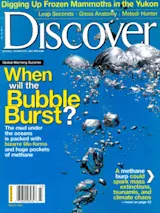The message on the pager caught my attention just as I was about to leave for my Sunday morning rounds at the hospital. I was on call for all the pediatricians in town this weekend and had a busy morning ahead of me. I called right away. A message like that could be anything from a stuffy nose to a severe respiratory problem.
“Hello, this is Dr. Cohen. What’s going on with your baby?”
“I don’t know. He seems to be breathing funny.” She didn’t sound panicked.
“Is he having trouble breathing? Is he turning blue?”
“No, it’s just that he’s making a kind of funny noise when he breathes, almost like he’s gasping or something.”
“Is he doing it right now?”
“Well, no, it seems to come and go. He’s been doing it since early this morning.”
After a few more questions, I decided that she didn’t need to ...














